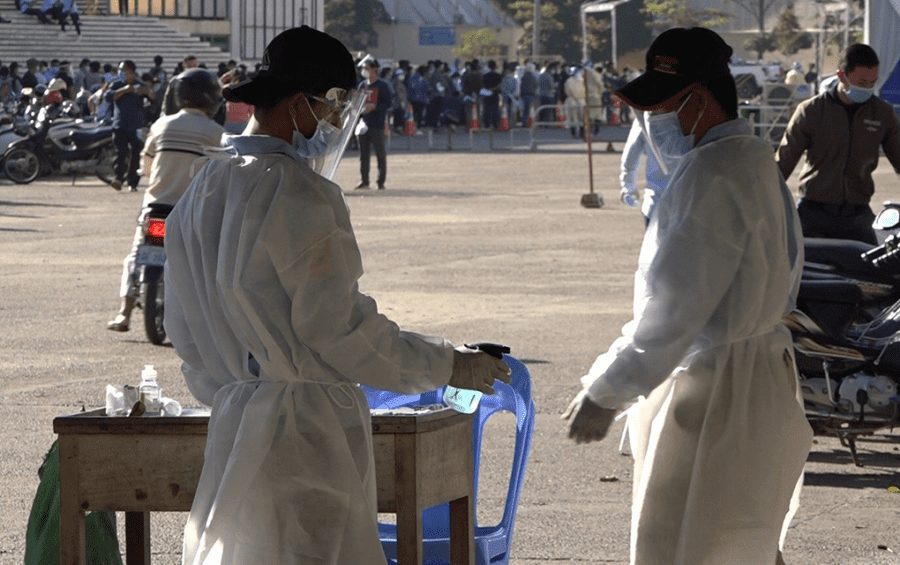The World Health Organization’s representative to Cambodia said Tuesday that the country’s six laboratories processing Covid-19 tests were working at about 175 percent of their “sustainable testing capacity” of 4,000 tests per day amid the country’s worst coronavirus outbreak to date.
“Currently, six laboratories are drawing on surge capacity to conduct about 7,000 tests per day, but this is not sustainable over long periods of time,” WHO representative Li Ailan said in an email. “Right now, sustainable testing capacity is about 4,000 tests per day.”
Last year, the Health Ministry reported a national testing capacity of 600 tests per day.
Multiple Covid-19 situation reports from WHO released this month say the ministry is “progressing with plans to expand and decentralize laboratory testing capacity for COVID-19 to three provincial laboratories: Siem Reap, Sihanoukville and Battambang.”
The National Institute of Public Health, one of the nation’s testing facilities in Phnom Penh, has “activated a new high throughput automated instrument to increase daily testing capacity,” the WHO reports add.
The WHO’s Li said on Tuesday that the global health organization was promoting the “best use of limited resources,” and along with other partners, was supporting the government to expand testing capacity.
The Health Ministry on Tuesday reported 105 new cases of Covid-19, all but one locally transmitted, including 45 in Phnom Penh, 34 in Preah Sihanouk and 19 in Svay Rieng. Other cases were found in Kampong Cham, Prey Veng, Takeo and Tbong Khmum.
The ministry also reported four new recoveries, leaving more than 1,100 active cases in the country. The number of active cases has risen steadily in the last six days, as the country faces an outbreak that health authorities have said is likely due to the spread of the B.1.1.7 variant, first identified in the U.K., which studies have shown is more contagious than earlier detected coronavirus variants.













